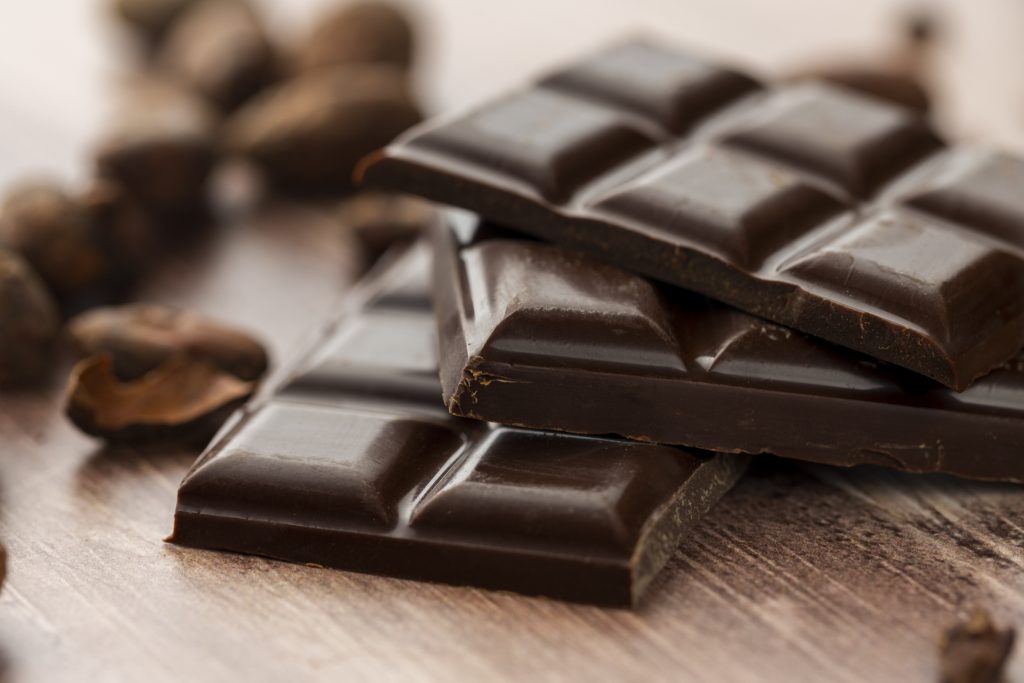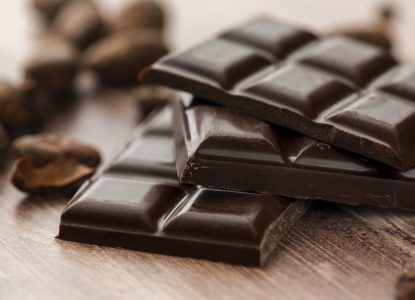By Morgana Sythove, Global Council Trustee for Multireligion at URI (United Religions Initiative)
– – –
A chance viewing on Dutch television of the documentary made by Lars Gierveld and Jochem Pinxteren, in 2018, about Cacao farmers in Ghana made such an impact on me that I decided to make my own investigations. Not only did I become more aware of ‘the dark secret of Chocolate’ but also the human rights violations and effects of Neo-colonialism. As an Anglo Dutch citizen now living in the Netherlands I wanted to familiarise myself with the history and background of colonialism, neo-colonialism and the case of Cacao.

Brief History of the Emergence of Neo-colonialism and the Cacao Trade
Neo-colonialism is the term used to define the economic sabotage of underdeveloped countries propagated by developed countries and large multinational corporations and was originally applied to European policies that were seen as schemes to maintain control of African and other dependencies. The EEC/ European Economic Common Market agreed in 1957 to include their overseas territories under the trade agreements. This was seen as “a new form of economic domination over French-occupied Africa and the territories of Italy, Belgium, and the Netherlands.”[1] The term was first used in the context of African countries undergoing decolonization by the first Prime Minister of Ghana, Kwame Nkrumah. His book, “Neo-Colonialism The Last Stage of Imperialism” when first published in 1965, caused such an uproar in the US State Department that a sharp note of protest was sent to Kwame Nkrumah and $25 million of American “aid” to Ghana was promptly cancelled.
Cacao was first cultivated in South America and the shift to Africa was partially practical (due to Central Africa’s cacao-friendly climate). Still, the main impetus for relocating cacao farms was easy access to cheap labour coupled with imperial pressures from Europe.
With the Americas gaining independence, European imperialism turned its eye toward Africa in what has been referred to as the “scramble for Africa.”
While the Dutch role in Africa and the Cacao Trade may not be so evident, it is connected economically because the Port of Amsterdam is the largest Cacao Harbour in the world. Indonesia, a former Dutch colony, is also the third-largest supplier of Cacao in the world.
Racism and Ecological Issues
It is clear that racism is not only a human issue. It is also an ecological issue as the living environment is exploited from all angles. The historical background is now being conveniently forgotten and even denied. We hope to raise awareness of neo-colonialism, how it is manifesting in the cocoa and chocolate business, and what can be done to end the exploitation of the local communities
It is not enough to provide humanitarian aid providing the bare essentials of ‘bread, bed & bath’ we must find a way of implementing restorative healing moving from ‘humanitas to dignitas’. Working with local people with respect and dignity, alleviating them of the dire poverty they find themselves in.
Not only are human rights at stake, but the devastation caused by deforestation is also untold. According to a recent report from ‘Mighty Earth’, “Around 75% of the world’s cocoa comes from West Africa, with the Ivory Coast and Ghana, the leading producers. In the last 60 years, these two countries have lost around 94% and 80% of their forests, respectively, with at least one-third of forest loss to make way for expanding cocoa production.”
What can we do to help?
There a number of issues concerning the ‘Case of Cacao’, ranging from Human Rights to the Rights of Nature, of the polycrisis facing not only the farmers in Ghana and the Ivory Coast but all of us.
It’s overwhelming. Is there hope? Or is it really too late? My conclusion is that it is never too late! We as consumers of cocoa and chocolate can still make our voices heard. We can support the organisations working towards greater collaboration with local governments and local communities.
With respect to the living conditions and humanitarian aid, we heard that there are efforts being made toward greater equity and restorative healing. New business models are being introduced where farmers are treated with respect and dignity. New products and alternatives to cacao farming are also being introduced. Women in particular are benefitting from these initiatives.
Action starts right now, in our own back garden. We can sort our waste, limit our use of ‘single-use plastic’, save water, save energy, buy ethically, bank ethically.
We can also work with our own local communities and raise the ethical issues of consuming chocolate. When we buy cocoa, or chocolate, which brands are the top scorers for addressing deforestation and climate change? Which brands are low on the scorecard? Which Banks are still facilitating investments heavily in Cacao and Chocolate?
Chocolate is a mega-business, garnering at least $13 billion on the global cacao market. We are being told that chocolate is beneficial to us. The darker the chocolate is, meaning a higher percentage of Cacao, the more beneficial it is. Is this correct? Or is it yet another ‘dark secret of chocolate’ filling yet another company’s coffers.
There are still so many questions! Organisations like ‘Mighty Earth’/ Sam Mawutor and the ‘VOICE Network’ / Antonie Fountain, provide invaluable resources and information.
I wish to express my appreciation to Audrey Kitagawa, Chair of the IF20 Anti-Racism Initiative, who made possible the webinar held on June 8, 2023, and the panelists, (Dr. Michael Odijie, Lars Gierveld, Sam Mawutor, and Antonie Fountain), for making us aware of the real price of a bar of chocolate, or mug of hot cocoa!
Further References
Sam Mawutor authored a recent article: “Chocolate Scorecard 2023: cocoa’s impact on deforestation and climate”: https://www.mightyearth.org/2023-chocolate-scorecard
Voice Network, and the launch of the Cacao Barometer: https://cocoabarometer.org/en/
https://cocoabarometer.org/wp-content/uploads/2022/12/Cocoa-Barometer-2022-Executive-Summary.pdf
Lars Gierveld & Jochem Pinxteren Documentary 2018, ‘Mede mogelijk gemaakt..’: https://kumasi-drinks.nl/documentaire/
English subtitles documentary, ‘Made possible..’ : https://vimeo.com/525553590/4ca705804b
[1] https://www.britannica.com/topic/neocolonialism
– – –
Morgana Sythove, a Wiccan Elder, first became aware of URI in 2004 at the PWR/Parliament of the World’s Religions in Barcelona but it was not until 2008 that she became involved with URI in the Netherlands. Since then, she has become involved in various CCs in Europe, North America, and South-East Asia. Her interest and passion for Earth Spirituality and environmental issues brought her into contact with many diverse people and cultures. As she became more involved with various grassroots projects she became more aware of the problems Indigenous people face and the many problems caused by pollution and monoculture, resulting in climate change. Morgana has been instrumental in the formation of the new Multi CC Planetary Wellbeing and, together with the URI Environmental Network CC and Spirituality and the Earth CC, has strengthened the bonds with many environmentalists and partner organizations such as Charter for Compassion in supporting grassroots initiatives.


